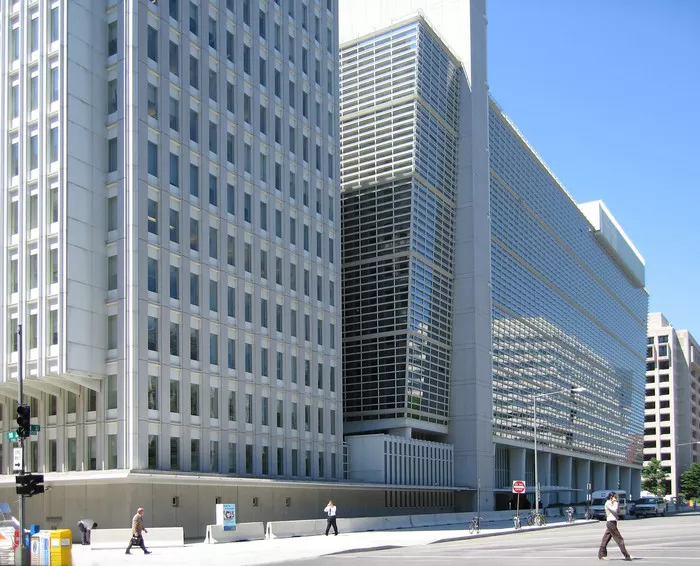In an unexpected move, the Bank of Korea (BOK) chose to keep its key interest rate unchanged on Thursday, resisting calls for further cuts despite growing concerns over the nation’s political instability and slowing economy. The central bank held its seven-day repurchase rate at 3%, a decision that defied the predictions of most analysts. While some had expected a rate cut to stimulate the economy, BOK officials instead opted to enhance support for smaller businesses to help sustain growth.
The decision came after the U.S. Federal Reserve’s rate trajectory and the weakening South Korean won were also considered in the central bank’s evaluation. Just four out of 22 economists surveyed by Bloomberg anticipated the BOK’s decision to stay put, while the majority forecasted a 0.25 percentage-point reduction to alleviate pressure on an economy reeling from political shockwaves, including President Yoon Suk Yeol’s controversial martial law decree and the December Jeju Air crash, which claimed 179 lives.
In a statement, the BOK noted that “downside risks to economic growth have intensified” and pointed to escalating political risks as well as increased exchange rate volatility. These factors were cited as the primary reasons for the central bank’s decision to pause rate cuts.
Despite easing rates at its previous two meetings, the BOK’s latest move indicates that policymakers feel they have done enough to support the economy for now, preferring to observe both domestic and global developments before taking any further action. Analysts, such as Kim Myoung-sil from iM Securities, suggested that three consecutive rate cuts might have been excessive and that the bank was cautious about overextending its easing measures.
Following the decision, the South Korean won saw a modest gain of 0.4% against the U.S. dollar, while government bond yields rose slightly. The country’s stock market also showed resilience, with the Kospi index holding onto gains of approximately 1.1%.
The political environment remains fraught with uncertainty. President Yoon’s martial law decree, issued on December 3, sparked widespread unrest and contributed to the first presidential impeachment since 2016. The political fallout is further compounded by fears that the return of Donald Trump to the U.S. presidency next week could bring heightened trade tensions, potentially straining South Korea’s export-driven economy. On top of this, a major aviation disaster in late December, coupled with rising unemployment, has dampened consumer sentiment.
Despite these concerns, the BOK’s decision reflects its wariness about further weakening the won, which experienced significant depreciation in 2024, making it Asia’s worst-performing currency. The won fell more than 12% against the dollar, exacerbated by political turmoil and a shift in the U.S. Federal Reserve’s rate policy. Given that the Fed is expected to slow its rate cuts, additional easing from the BOK could have added to the currency’s vulnerability.
“The primary reason for maintaining the rate is likely the currency situation,” said Kim from iM Securities. The central bank is wary of a further weakening of the won, which could undermine financial stability.
Bloomberg Economics echoed this view, suggesting that the BOK’s cautious stance is likely aimed at mitigating risks to financial stability. However, they maintain that the central bank could still ease further in the near future, with a potential rate cut in February. Economists predict that the BOK may lower its policy rate to 2.25% by the end of 2025 to support the economy.
While the BOK is not ruling out future rate cuts, it is clear that external factors, such as the Federal Reserve’s actions and the current state of the won, are central to its decision-making process. The central bank has pledged to monitor domestic political developments, international policy shifts, inflation trends, and exchange rate fluctuations when deciding on future moves.
For now, the BOK is conserving its policy tools and looks to the government for fiscal support. Acting President Choi Sang-mok has announced plans to increase government spending, including a special holiday in late January to stimulate consumption. The BOK has also expanded its financial assistance program for smaller businesses to 14 trillion won ($9.6 billion), up from 9 trillion won.
In addition to these steps, the BOK’s decision signals a measured approach to monetary policy, providing time for policymakers to assess the evolving situation and avoid further exacerbating the nation’s economic instability.
Governor Rhee Chang-yong is expected to address the media later Thursday, offering insights into the board’s decision and providing guidance on the potential direction of rate policy in the coming months.
Related topics:
Bank of America Downgrades Tesla Amid Rising Risks and Mixed Technology Developments
India’s Nifty Faces Oversold Territory as Oil Prices and Weak Rupee Drive Market Slide
EUR/USD Falls Below 1.0250 Amid Strong U.S. Job Growth and Fed Rate Pause Expectations


